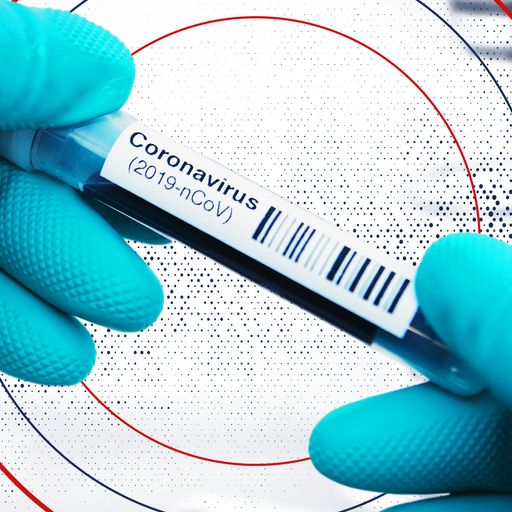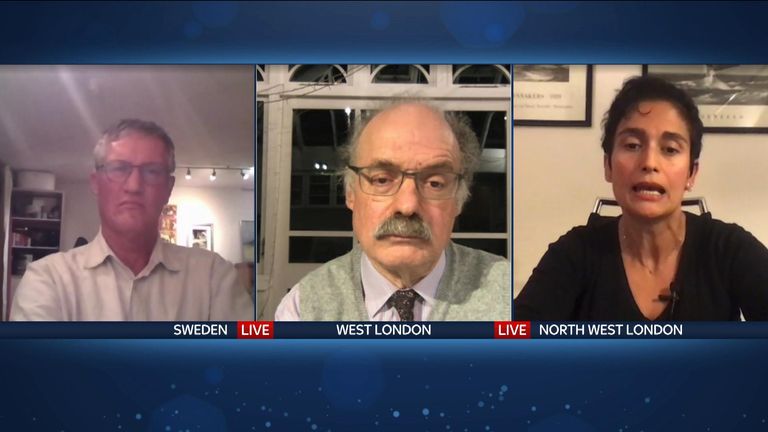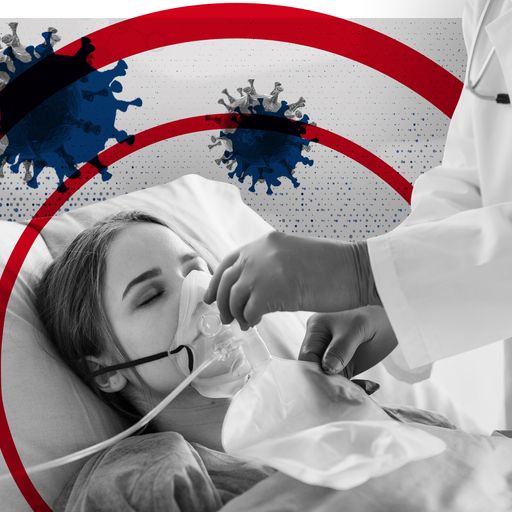The UK has become the first country to back studies that would see healthy volunteers deliberately infected with coronavirus after being given a potential vaccine.
Human challenge trials aim to speed up the development of vaccines and have previously been used in finding treatments for malaria, typhoid, cholera and flu.
The government has said it will initially invest £33.6m in the studies, although the research will need to be approved by regulators and the ethics committee before they can go ahead.
Live coronavirus updates from the UK and around the world
If approved, healthy volunteers between the ages of 18 and 30 would be given a potential vaccine that has proven to be safe in initial trials.
They would then be exposed to COVID-19 in a controlled environment and monitored 24 hours a day to see how the vaccine works and if there are any side effects.
The trials could begin in January and involve up to 90 volunteers.
The studies would be conducted by Imperial College London in partnership with the Department for Business, Energy and Industrial Strategy, the Royal Free London NHS Foundation Trust and hVivo, a company that has experience conducting testing.
Supporters of the studies say the approach can produce results faster than standard research, as there is no waiting for volunteers to become exposed to the disease – which could potentially save thousands of lives.
Critics argue it is unethical to deliberately infect people with a disease, but supporters say the risk is low and volunteers are carefully selected.
Dr Chris Chiu, from Imperial College London and lead researcher on the human challenge study, said: “Our number one priority is the safety of the volunteers. My team has been safely running human challenge studies with other respiratory viruses for over 10 years.
“No study is completely risk-free, but the Human Challenge Programme partners will be working hard to ensure we make the risks as low as we possibly can.”
:: Subscribe to the Daily podcast on Apple Podcasts, Google Podcasts, Spotify, Spreaker
The initial aim will be to find out the smallest amount of virus it takes for someone to become infected.
Researchers would then study how vaccines work in the body to stop COVID-19.
Specially designed facilities at the Royal Free would be used to conduct the study, with volunteers monitored under strict conditions and medics on hand.
There would be a controlled entrance to the facility, careful decontamination of waste and all the air leaving the unit would be cleaned so there is no risk to anyone outside.
Deputy chief medical officer Professor Jonathan Van-Tam said the trials could be used to find an effective vaccine.
“First, for the many vaccines still in the mid-stages of development, human challenge studies may help pick out the most promising ones to take forward into larger Phase 3 trials,” he said.
“Second, for vaccines which are in the late stages of development and already proven to be safe and effective through Phase 3 studies, human challenge studies could help us further understand if the vaccines prevent transmission as well as preventing illness.”



